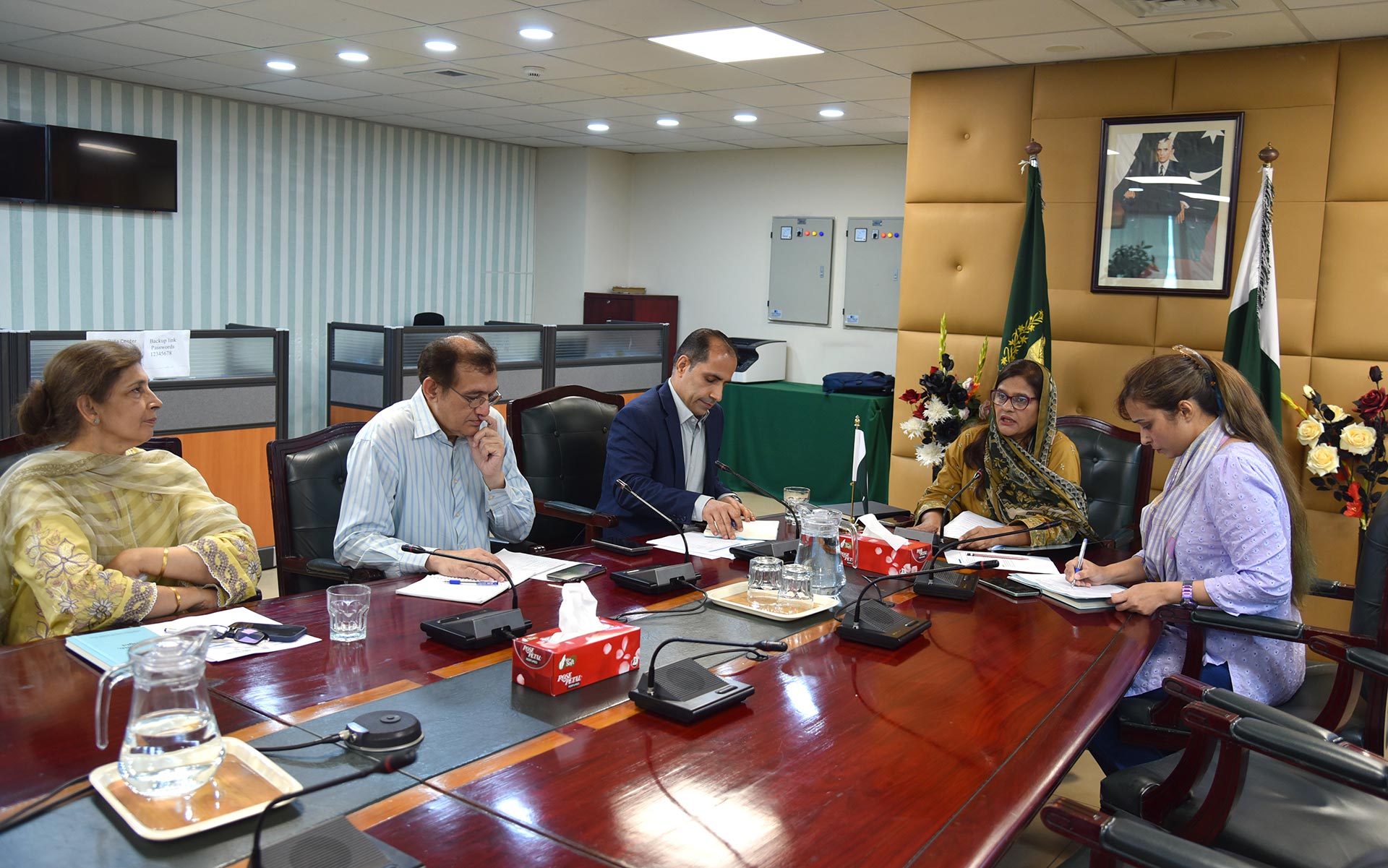 Director General Health Dr Shabana Saleem chairs the Health Sector Coordination Forum held on 8 July 2025. Photo credit: WHO/Hamid Inam8 July 2025, Islamabad, Pakistan – The World Health Organization (WHO) joined the Government of Pakistan and health sector partners to discuss the Monsoon Contingency Plan 2025 and prepare to provide emergency health assistance to 1.3 million vulnerable people across 33 priority districts in anticipation of monsoon floods.
Director General Health Dr Shabana Saleem chairs the Health Sector Coordination Forum held on 8 July 2025. Photo credit: WHO/Hamid Inam8 July 2025, Islamabad, Pakistan – The World Health Organization (WHO) joined the Government of Pakistan and health sector partners to discuss the Monsoon Contingency Plan 2025 and prepare to provide emergency health assistance to 1.3 million vulnerable people across 33 priority districts in anticipation of monsoon floods.
During a meeting of the Health Sector Coordination Forum, led by the Ministry of Health with support from WHO as co-lead, the Government of Pakistan and partners focused on the review and finalization of the Contingency Plan to ensure preparedness ahead of potential monsoon-related flooding, which poses significant threats to public health and the delivery of essential health services. The main objectives are to ensure a coordinated and timely emergency response, maintain uninterrupted delivery of essential health services to populations in high-risk areas, and strengthen disease surveillance, early warning systems and rapid outbreak response.
The 33 priority districts identified in the Contingency Plan are located in Punjab (10), Sindh (10), Balochistan (9) and Khyber Pakhtunkhwa (4). Priority populations include pregnant and lactating women, children under 5, persons with disabilities, the elderly, internally displaced persons (IDPs) and underserved communities in high-risk and flood-prone areas.
Key activities include the prepositioning and distribution of emergency health kits and supplies, enhanced surveillance and outbreak detection and response, improved water, sanitation and hygiene (WASH) interventions in health facilities, and service delivery through static and mobile facilities, outreach services and telemedicine, among others.
“WHO stands with Pakistan and partners to be ready to save lives by supporting rapid response, surveillance and the continuity of essential health services in the event of a natural disaster. In a context marked by the impacts of climate change, which are exacerbating risks, it is crucial to be ready to protect the health of all, particularly the most vulnerable,” said WHO Representative in Pakistan Dr Dapeng Luo.
According to the Global Climate Risk Index 2021, Pakistan ranked as the 8th most affected country by extreme weather events between 2000 and 2019, experiencing frequent severe natural disasters, including floods, droughts, heatwaves and pandemics. Among these, monsoon-induced floods remain the most recurrent and destructive, with catastrophic impacts on human health, infrastructure and livelihoods.
The 2022 floods affected over 33 million people across 116 districts, damaged more than 2000 health facilities and placed enormous strain on the public health system. In the context of recurring emergencies, anticipatory and coordinated health planning is essential to save lives.
Today, the Pakistan Meteorological Department and the National Disaster Management Authority (NDMA) issued a countrywide flood alert due to intense monsoon activity, warning of the consequences of widespread heavy rainfall between 7-9 July. According to the NDMA, a total of 79 fatalities and 140 injuries have been reported since the onset of the monsoon on 26 June.
For additional information, please contact:
Maryam Yunus, National Professional Officer – Communications, WHO Pakistan, This e-mail address is being protected from spambots. You need JavaScript enabled to view it (copying This e-mail address is being protected from spambots. You need JavaScript enabled to view it )
José Ignacio Martín Galán, Head of Communications, WHO Pakistan, This e-mail address is being protected from spambots. You need JavaScript enabled to view it
About WHO
Founded in 1948, WHO is the United Nations agency that connects nations, partners, and people to promote health, keep the world safe and serve the vulnerable. We work with 194 Member States in 150+ locations – so everyone, everywhere, can attain the highest level of health. For more information, visit https://www.emro.who.int/countries/pak/index.html. Follow WHO Pakistan on Twitter and Facebook.




